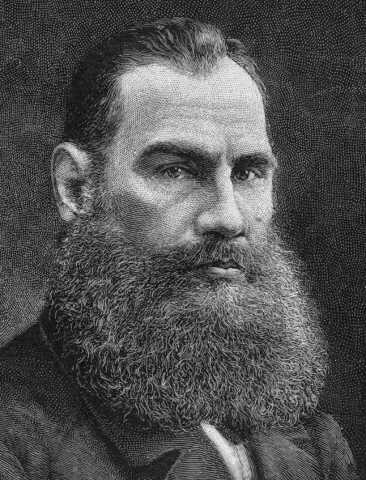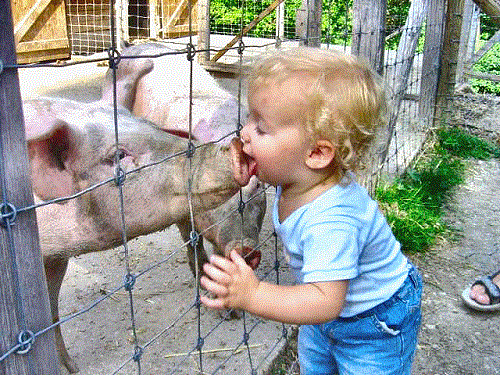Leo Tolstoy penned the preface for the 1892 Russian Edition of “The Ethics of Diet”, which was written by Howard Williams. In that preface, you will find some well known quotations regarding Tolstoy’s ethics on animal rights, such as calling the consumption of animal products “simply immoral as it involves the performance of an act which is contrary to moral feeling -killing; and is called forth only by greediness and the desire for tasty food” and “man suppresses in himself, unnecessarily, the highest spiritual capacity—that of sympathy and pity toward living creatures like himself—and by violating his own feelings becomes cruel. And how deeply seated in the human heart is the injunction not to take life!”.
Tolstoy publicly advocated vegetarianism as one of the “first steps toward a good life”. He was quoted verbally, as well from his writings, many times. Here are but a few profound Tolstoy quotations/statements:
“A vegetarian diet is the acid test of humanitarianism.” ~ Leo Tolstoy
“A man can live and be healthy without killing animals for food; therefore, if he eats meat, he participates in taking animal life for the sake of his appetite. And to act so is immoral.” ~ Leo Tolstoy
“Vegetarianism serves as the criterion by which we know that the pursuit of moral perfection on the part of humanity is genuine and sincere.” ~ Leo Tolstoy
“Thou shalt not kill” does not apply to murder of one’s own kind only, but to all living beings; and this Commandment was inscribed in the human breast long before it was proclaimed from Sinai.” ~ Leo Tolstoy
“It is horrible! It is not the suffering and the death of the animals that is horrible, but the fact that the man without any need for so doing crushes his lofty feeling of sympathy and mercy for living creatures and does violence to himself that he may be cruel. The first element of moral life is abstinence.” ~ Leo Tolstoy
“A human can be healthy without killing animals for food. Therefore if he eats meat he participates in taking animal life merely for the sake of his appetite. And to act so is immoral.” ~ Leo Tolstoy
“As long as there are slaughterhouses, there will be battlefields.” ~ Leo Tolstoy
“If a man’s aspirations towards a righteous life are serious…if he earnestly and sincerely seeks a righteous life, his first act of abstinence is from animal food, because, not to mention the excitement of the passions produced by such food, it is plainly immoral, as it requires an act contrary to moral feeling, i. e., killing – and is called forth only by greed.” ~ Leo Tolstoy
“Vegetarianism serves as the criterion by which we know that the pursuit of moral perfection on the part of humanity is genuine and sincere.” ~ Leo Tolstoy
“What I think about vivisection is that if people admit that they have the right to take or endanger the life of living beings for the benefit of many, there will be no limit for their cruelty” ~ Leo Tolstoy
In the essay he wrote, “The First Step”, Tolstoy discusses the immorality of being carnivorous. See full text HERE, if you are interested in reading further.
Sadly, Tolstoy battled with regret and some amount of tragedy during much of his life. He was very remorseful over living promiscuously in his younger years, lying, stealing, gambling, fighting and killing in battle, etc… even though he had received several medals of honor during the Crimean War. He and his wife had some 13 children, 5 of which died before reaching adulthood. He was obviously a brilliant writer and philosopher, most well known for his epic work, “War and Peace”, first published in 1869.
In regard to Tolstoy’s life-changing push toward animal rights, it is said that he originally had the epiphany which opened his eyes to the plight of animals, whilst attending the public execution of a convicted criminal. It had a profound effect on Tolstoy and from that moment forward, his views on life were forever altered. He became an outspoken proponent of all life, regularly proclaiming that all men were brothers. He believed that a bond of love existed between them and that bond should extend itself to all creatures.
Tolstoy lived on a very basic diet of fruit, vegetables, bread, nuts and porridge.
The AELLA Team




